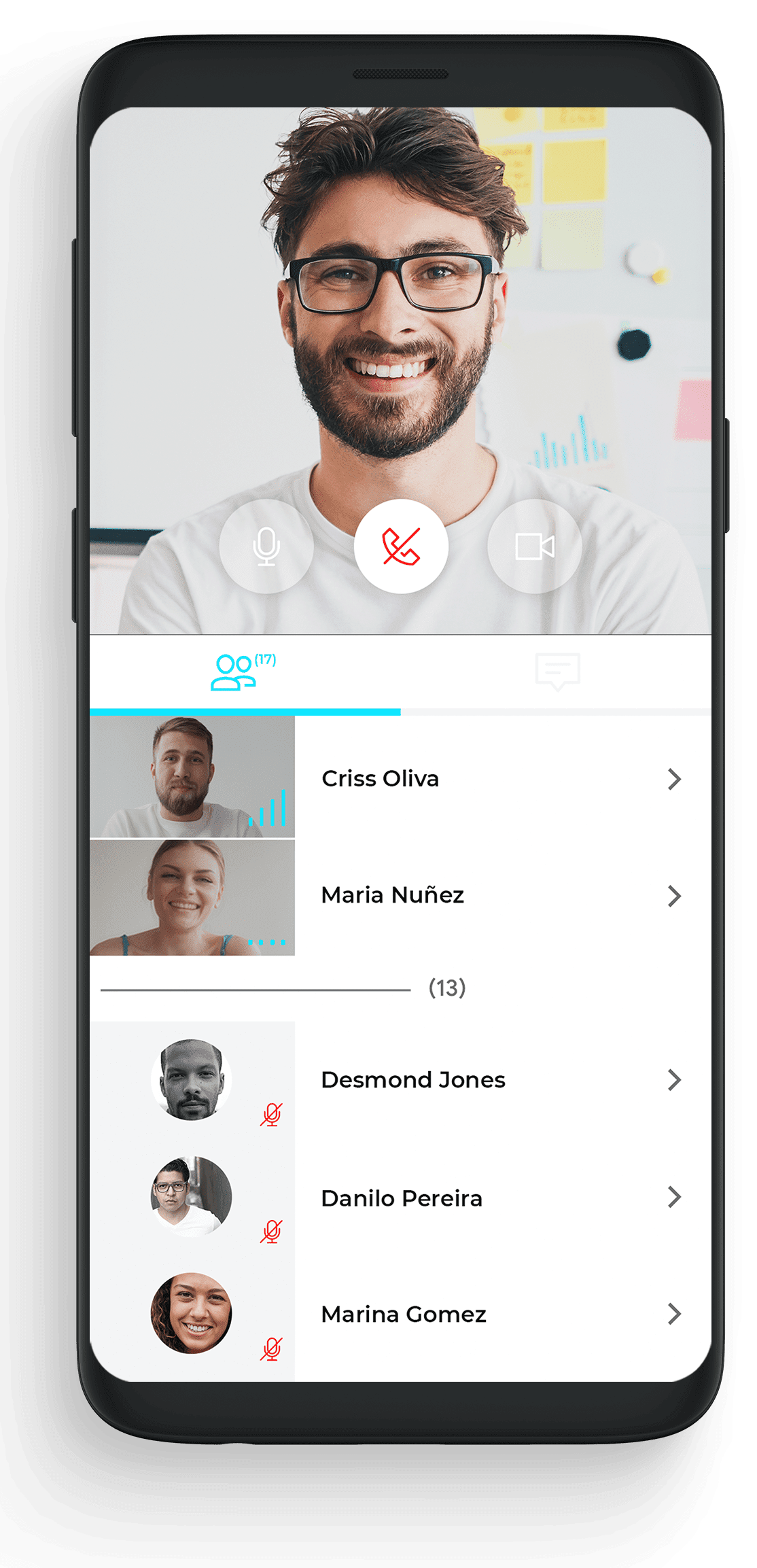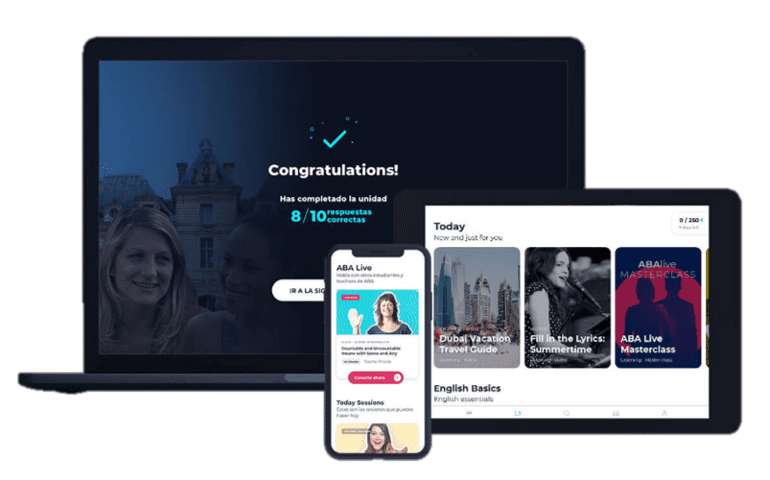IELTS Listening
We’ll guide you through your preparation for IELTS listening
Can you tell the difference between British and American accents? Do you think your ear is really well trained? Listening is a skill that requires you to accustom yourself to hearing many things in English, which is exactly what will be tested in your IELTS listening test.
At ABA English, everything starts with the play button—all the resources we offer you, either through our certified course, by watching an ABA Film with native actors with typical accents acting out everyday situations, or through our app featuring microlessons from native teachers. This is because we understand the situation. You need to immerse yourself in English and obviously, the first way to approach a new language is to listen to it.
Do you like your movies and TV series dubbed or subtitled?
Learning a new language requires a little effort and dedication. Yes, sometimes it can be uncomfortable to listen to the dialogues and not understand anything or understand very little. However, if you don’t expose your ear to these new phonetics, which are different from your native language, you won’t get used to them easily.
There’s no secret or trick to strengthening your listening skills. The best way to practice IELTS listening is very simple: you have to listen to more things in English. This can be through songs, movie dialogues, podcasts, or whatever you prefer. While passive listening will eventually improve your IELTS listening skills, you can shorten the process if you consciously confirm the correct pronunciation of the words and—even better—if you repeat them.

Here are some IELTS listening tips to help you pass the test
Practice makes perfect
There are no shortcuts here. Train your ear by spending a few minutes each day practicing. Don’t complicate things; listen to what you like. The best movies for IELTS listening are the movies you like! At ABA English, we have a wide variety of content for you to choose from, thanks to our Smart Learning® method. You’ll quickly see that learning can be exciting!
The whole picture
Learn to understand the context. There may be words that are new to you, so don’t let that stop you. As you practice, you’ll find that you’re able to infer important ideas more frequently without having to understand every single thing you hear.
Pay attention to intonation
It’s not just about words, tone and accent can sometimes be even more important and give more meaning to the dialogue. Remember that the questions are deliberately designed to assess whether you really understand the conversation. Again, it takes practice to identify these patterns. Can you identify sarcasm, for example?
Be proactive
There are 4 sections, 4 audios, and you’ll have 30 seconds before each one to read the questions, 10 per section. To prepare your answers in the IELTS listening test, read and try to guess what the conversation will be about. Also, as you listen, use your intuition and deductive skills to prepare for what you’re likely to hear and to make it easier to understand.
It’s time to improve your listening with ABA English!
These FAQs will clear up your doubts
Do the audios have a British accent?
Not necessarily. Even though the IELTS comes from the UK, being accepted in most English-speaking countries requires a non-biased accent. You can hear British, American, Australian, and even regional accents.
How many times do they play each audio?
Only once. Don’t be overconfident. They used to play it twice and you may still find this outdated information online.
How long does the test take?
40 minutes. 30 to listen to the audios and answer and 10 more to record your answers on the answer sheet.
What kinds of audios do they use?
The first section is a general conversation, the second is a general monologue, the third is an academic conversation, and the fourth is an academic monologue.
Are the questions multiple choice?
Some IELTS listening test exercises are multiple choice, but you’ll also have to complete sentences and write short answers, so you must know how to spell the words correctly.
Why do we recommend ABA English?
Original content
You can certainly find thousands of online courses to use for IELTS listening practice, but you won’t find what we have at ABA English anywhere else. Would you like to see an original video clip with native actors depicting everyday situations? Well, this is how our certified English course starts, with an ABA Film. And that’s just the beginning.
Audio resources
To make sure you have a unique learning experience, we’ve added the Today section to our app so that you have several podcast and audio options featuring different themes and accents. This will help you prepare to listen to any kind of conversation, whether it’s everyday, formal, or academic.
Live interactions
What’s more, you’ll have the opportunity to talk about current issues and academic topics with other students and teachers in our Speaking Sessions. You choose. The important thing is that by talking with others, you’ll be able to easily identify and correct your deficiencies in listening comprehension.

Do you want to join more than 30 million students and enjoy our Smart Learning® method?
You read that correctly, our method is enjoyable. At ABA English, we understand that you learn better if you have fun doing it. That’s why we’ve designed a methodology that helps you internalize the language, with its grammar and vocabulary, emotionally. To achieve this, we have many new and entertaining microlessons, which you can watch or listen to on your smartphone from anywhere and at any time, as well as podcasts, video classes with our native teachers, and many other perks.
And if you’re still concerned about preparing for the IELTS listening test, you should know that the content in our lessons has been deliberately aligned with the requirements of the institutions that evaluate and certify English levels, such as Cambridge University and the British Council, developers of the IELTS. You can be sure that every time you master a unit from our course, you’ll be mastering a subject that will be assessed during the IELTS exam.







